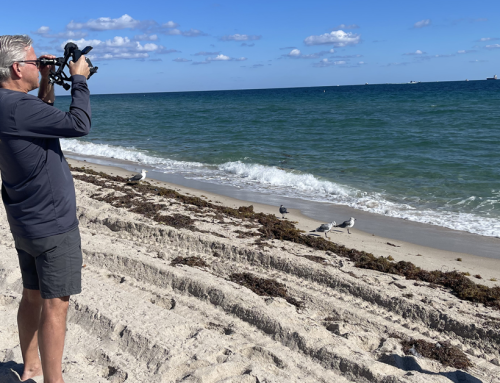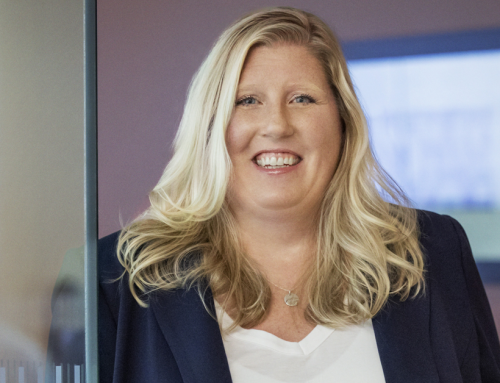Guests: Leslie Zane, the founder of Triggers, which is the first brand consultancy built on the premise that instinct rather than conscious thought is what guides brand decisions. She’s also the author of the new book The Power of Instinct: The New Rules of Persuasion in Business and Life.
In a Nutshell: We’ve all heard the saying, “You never get a second chance to make a first impression.” But what if our first impressions, and indeed all of our decisions, are made not by our conscious mind, but by our unconscious instincts? According to Leslie Zane, business leaders need to refine their instinctual appeal in order to persuade both clients and prospects to rationalize complex connections between their feelings, their memories, their desires, their problems, and your company.
On today’s show, Leslie challenges traditional marketing wisdom and reveals how understanding the unconscious mind can be a powerful tool and revolutionize the ways we approach business growth, brand building and client relationships. If you’re looking to accelerate your practice’s growth and build a more compelling brand, you won’t want to miss Leslie’s insights and practical strategies for tapping into the power of instinct.
.Leslie Zane and I discuss:
- Leslie’s earliest money memories and what they taught her about the value of money and hard work.
- Why Leslie doesn’t believe in persuasion.
- Appealing to the unconscious mind to break through with the conscious mind.
- The web of connections that creates our instincts and how to create more of them with your brand’s “connectome.”
- What Al Ries and Jack Trout got right and wrong in their marketing classic Positioning.
- How to care for a brand so that it “lives forever.”
- Incorporating your firm’s system into your branding to attract new business.
- Lessons on harnessing powerful brand growth triggers from Volvo, 7-Up, Aquafina, and Johnson’s Baby.
. Quotes:
Leslie Zane on how unconscious instinct drives our decisions:
“The brain has two mechanisms. One is conscious and the other is unconscious. And we now know that the majority of our decisions are actually made with the unconscious mind, not the conscious mind. But when you think about the techniques of persuasion, they are all going against that conscious mind. And it doesn’t work for two reasons. One, the conscious mind is stubborn, it’s set in its ways, it’s resistant to change, it doesn’t want to do what you tell it to do. The second problem is only about 5% of our decisions are made consciously anyway. So we’re basically expending 100% of our energy and effort and resources on only 5% of the decisions that people make. That’s a waste of time. No wonder getting organic growth is so hard. So what we advocate is really focusing on the instinctive mind, which is making the majority of your decisions anyway. What the conscious mind does is it rationalizes, after the fact, the decisions that you have made instinctively. The instinct is really what is driving it. That is the command control center of choice, of instinctive choice, and it drives every decision that you make, from how many times you brush your teeth, to which brands you buy in the store, and which financial advisors you choose to manage your money.”
Leslie Zane on growing your brand to grow your business:
“I think of everything as a brand. You’re a brand. I’m a brand. This podcast is a brand. My upcoming book is a brand. My company, Triggers, is a brand. And each of the financial advisors in your audience is also a brand. A brand is known by the associations it keeps. That’s a really important point. Think of it like a brand is a seed. I plant the seed in your mind, and as I add more positive associations to that seedling, think of that as the soil, the water, and the sun. It’s nutrients that it needs to grow. The seed turns into a seedling. It puts down roots. It turns into a little plant. Then, little by little, if you’re lucky and you do this right, your seed will grow into a full-grown tree. The moment your tree is bigger, has a larger canopy, a bigger root system in people’s brains than your competition, you are going to get a switch. They are going to move from either not having a financial advisor to having a financial advisor or from one financial advisor to another.”
Leslie Zane on incorporating familiar marketing “triggers” into your distinct brand:
“The couple on the yacht, the couple on the beach, the beautiful home with the glass windows, getting out of the red sports car: we have these things in our minds already. And so if you’re not using them and some other guy is, then you’re letting him have the more aspirational brand. So I would argue that some of these things are really useful. You need to figure out which ones feel authentic to you and feel consistent with your personal brand. Because you certainly don’t want to do anything that doesn’t seem fitting. And I think you can still do a lot of this in a very classy, refined way, and not clichéd, by making them distinctive to you. So I’m not saying to use them as is, I’m saying to figure out what your version of that thing is.”
Resources Related to This Episode
- Leslie Zane on LinkedIn
- Using Systems Thinking to Solve the Organic Growth Problem Amit Dogra, President and COO of tru Independence, discusses why sustainable organic growth requires an understanding that every facet of your organization is interconnected.
- Marketing Expert John Wernz On Digital Marketing, SEO, Media Efficiency Ratio, and a ChatGPT-4 Marketing Plan John and I discuss all aspects of the marketing process and identify actionable ways for you to improve every step of your marketing program.





